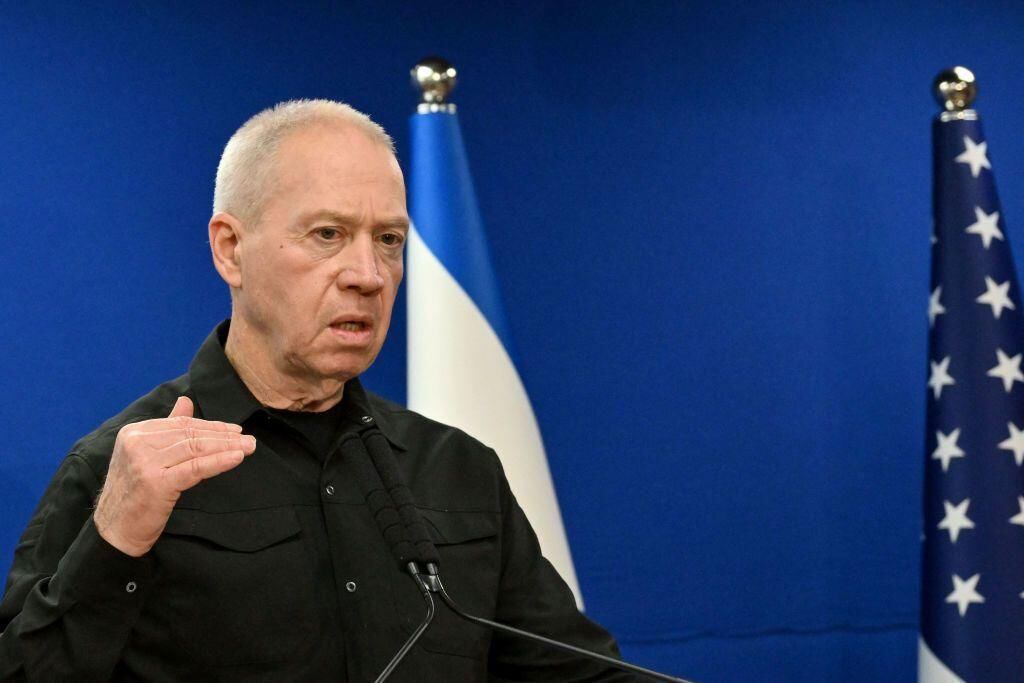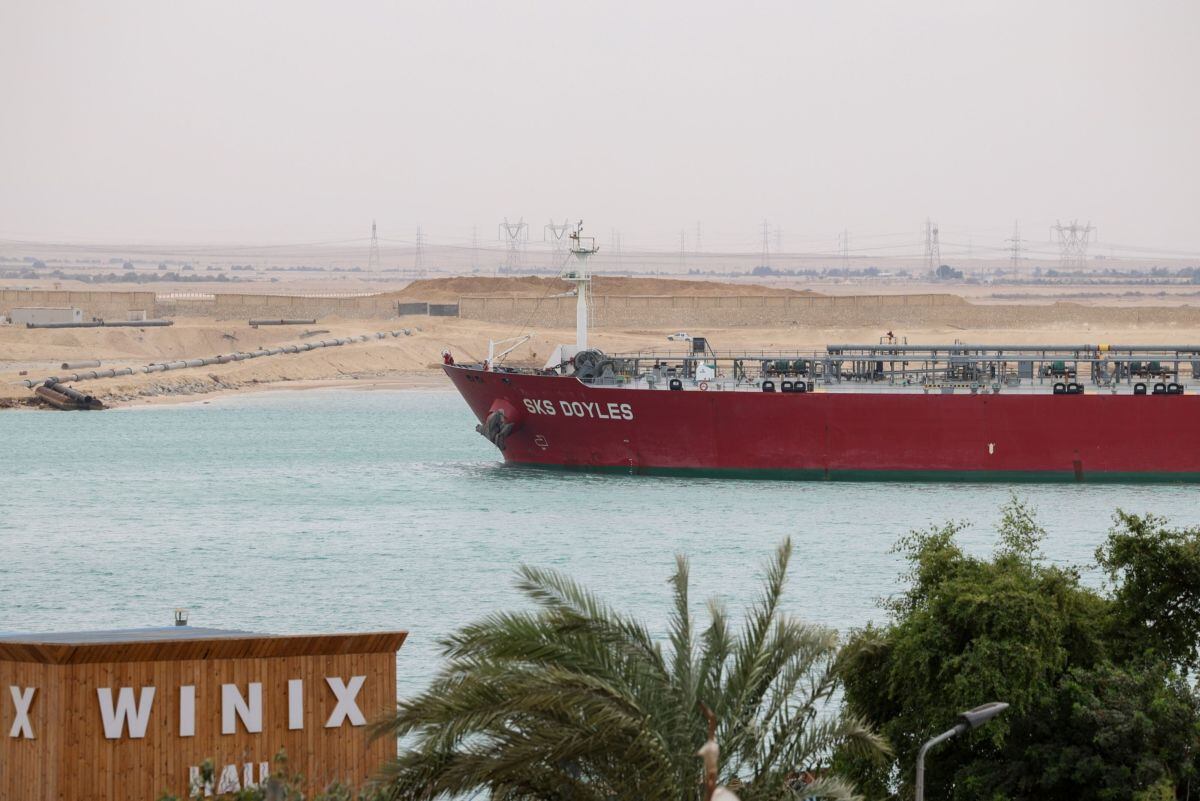Three months have just passed since Israel declared war Hamasafter the Palestinian group carried out a series of attacks that left at least 1,200 dead and more than 200 kidnapped.
TO LOOK: Why is Israel not closer to ending Hamas three months after the start of the war?
Still in shock at having suffered the worst attack since its founding in 1948, Prime Minister Benjamin Netanyahu assured that day that the Israel Defense Forces (IDF) “They will immediately use all their strength to destroy Hamas’ capabilities”.
Twenty days later, Jewish forces announced the start of ground military operations in the Gaza Strip. To this would be added the incessant bombing launched on the small Palestinian enclave which, according to the authorities responsible for Hamas, has already caused the deaths of around 23,000 people.
The Israelis doubt these figures, but they claim to have caused thousands of casualties among the ranks of Hamas, in addition to having seriously affected its military capabilities, including the huge network of underground passages where weapons are stored and many of its fighters hide.
Last Saturday, the 6th, Israel announced that it had “disassembly completed” Hamas soldiers in northern Gaza, inaugurating a new phase of their operations.
According to Israeli Defense Minister Yoav Gallant, Hebrew forces will now focus on pursuing Hamas leaders, who would be located mainly in the south of the strip. Although the intensity of attacks is expected to decrease in this new period, it is also estimated that it would be much longer in terms of time.
In its national budget, Israel estimated that the war will continue for the rest of the year. Furthermore, from the beginning, its leaders warned on numerous occasions that it would be a long war.
“Public opinion in Israel is in favor of continuing the war against Hamas. After October 7th, people made the decision to change the situation on our southern border forever“, he comments The disappeared trade Ido Zelkovitz, researcher at the University of Haifa, historian and expert on the Arab-Israeli conflict.
A year after the Israeli withdrawal from the Gaza Strip, Hamas won local elections and took control of the enclave. Since then it has launched a series of missile attacks and waged two wars against Hebrew forces. The last conflict ended in 2014 with a mutual ceasefire, but Israelis fear that a new agreement of this type will provoke an even worse attack in the future.
“This terrorist organization has a territorial position, with civilians in its charge. This is seen very rarely in history, but now it is being seen in Lebanon with Hezbollah and in Gaza with Hamas. It was known that Hamas had this power, but it was believed that it wanted to take care of its population. This is why it was believed that they would never carry out their threats, because if they did, they would endanger their population and the good things that were in Gaza.”, says Lior Ronin, a Middle East security expert.
This is why more than 70% of Israelis believe that their security depends on the total elimination of Hamas, according to surveys carried out in recent months. But is it really possible to “wipe” Hamas off the map?
“It depends on how you see Hamas, as an organization or as an ideology. If we talk about organization, we can end its ability to govern and function militarily. This can be achieved. The mission is that no jihadist organization threatens Israel from the south again and this will only be achieved by maintaining a firm position within Gaza to ensure that these organizations do not emerge again. The defense must move from reactive to proactive. But if we consider Hamas as the Salafist Muslim ideology from which it was born, it will be very difficult to defeat it, it will take many years and society will have to be transformed. Two or three generations will have to be re-educated because they were brought up thinking that holy war is the most glorious thing. But it is possible, just as Nazi Germans or Japanese imperialists were transformed”, considers Lior.
In the weeks that the conflict continued, some voices opposing the continuation of the war were also heard. Whether due to the hostage situation, the military casualties suffered or the shocking death toll in Gaza, almost 20% of the Israeli population has said at some point that they are in favor of ending the conflict.
For Professor Zelkovitz, this is limited to ““Just a few voices from the radical left protesting and calling for an end to the conflict.”
“From the beginning of the war it was clear that the conflict would last several months, so for now I would say that there is no change in the perception that Hamas had. What was achieved, however, was a better understanding of Hamas’ war tactics by the population of Gaza. I would say that the Israeli population wants its army to work slowly but productively.”, adds the academic.

As expected, the conflict with Hamas almost immediately turned into a new confrontation between Israel and the Palestinian group’s allies. The Iranian-funded Lebanese militia, Hezbollah, and the rebel group fighting for control of Yemen, the Houthis, have been the most active actors in this dispute.
Hezbollah did so through constant bombings in northern Israel, a region with which it borders. While the Houthis have threatened all ships supposedly related to the Hebrew nation that transit the Red Sea, even endangering the stability of international trade and leading to a military response from the United States.
The active role of both and their ties with Israel’s main enemy power in the region, Iran, raised fears from the beginning that the conflict would worsen and become regional. Although according to Lior this can already be considered that way.
“By starting to attack ships that had nothing to do with the Red Sea, and affecting the international economy, the Houthis have already turned this into a regional conflict. It may be controlled and smaller, but it is still regional. The United States formed an alliance, not only because of the threat, but because on the other side they have their great enemy, China, who would benefit if this conflict continued.“, ensures.

On January 3, the death of Saleh al-Arouri, Hamas’ number two who was hiding in Beirut (Lebanon), under the cover of Hezbollah, was reported. Israel was responsible for this elimination and it is feared that this will lead to the Lebanese militia becoming fully involved in the war.
“It involved crossing the line established by Hassan Nasrallah, head of Hezbollah. He said any removal of a Palestinian leader on Lebanese territory would receive a strong response. In fact, there was no response, apart from the fact that 60 rockets and suicide drones were fired. But Hezbollah can do much more. This means they do not want to come into direct conflict with Israel. And the Israeli army spokesman stressed that the attack was against Hamas, the war is against them and their leaders, no matter where they are in the world. However, Wissam al Tawil, who led an elite Hezbollah force, has just been eliminated because he was in charge of the rocket attack. Al Tawil is a figure very close to Nasrallah, he is his brother-in-law; and he was very close to Qassam Soleimani. This will make Nasrallah less idle, but I don’t think he will still use all the capabilities that Hezbollah has. In the coming days they could carry out a serious attack, even reaching Haifa, because this would show that they can also exceed the limit that Israel has established” explains Lior.
Professor Zelkovitz, who lives in Haifa, says war in the north is considered inevitable by many in the country. “It is understood that it is only a matter of time before war breaks out in northern Israel. And I believe that after the end of the conflict in the south, it will also be necessary to change the reality we have on our northern border.“, he points out.
The international community has exerted constant pressure on both the Israeli side and Hamas to reach a ceasefire. The Hebrews established as a condition the release of the hostages and the removal of the group they consider terrorists from political power in Gaza. Hamas fighters clearly do not accept these conditions and demand that the humanitarian crisis in the enclave is reason enough to stop.
Lior explains that Israel is not willing to expose itself to a new threat in the future and that negotiations with a counterpart like Hamas are virtually impossible due to its very nature.
“International pressure can always influence, but in history we will see that ceasefires did not bring peace, but more conflict. Palestinian terrorist organizations have always exaggerated their numbers by 70% and consider everyone to be civilians, the truth is that the majority of those killed are actually armed combatants. However, no one asks them for proof. We, on the other hand, are asked for proof of what happened on October 7th and even when we show it they say it is Zionist lies. To negotiate, there needs to be common ground, there is no common ground between Israel and Hamas because all they seek is the destruction of Israel.“, explains the analyst.
Source: Elcomercio
I am Jack Morton and I work in 24 News Recorder. I mostly cover world news and I have also authored 24 news recorder. I find this work highly interesting and it allows me to keep up with current events happening around the world.

:quality(75)/cloudfront-us-east-1.images.arcpublishing.com/elcomercio/YUXOAGAYV5CYZDO6YKUGCFAVRI.jpg)





